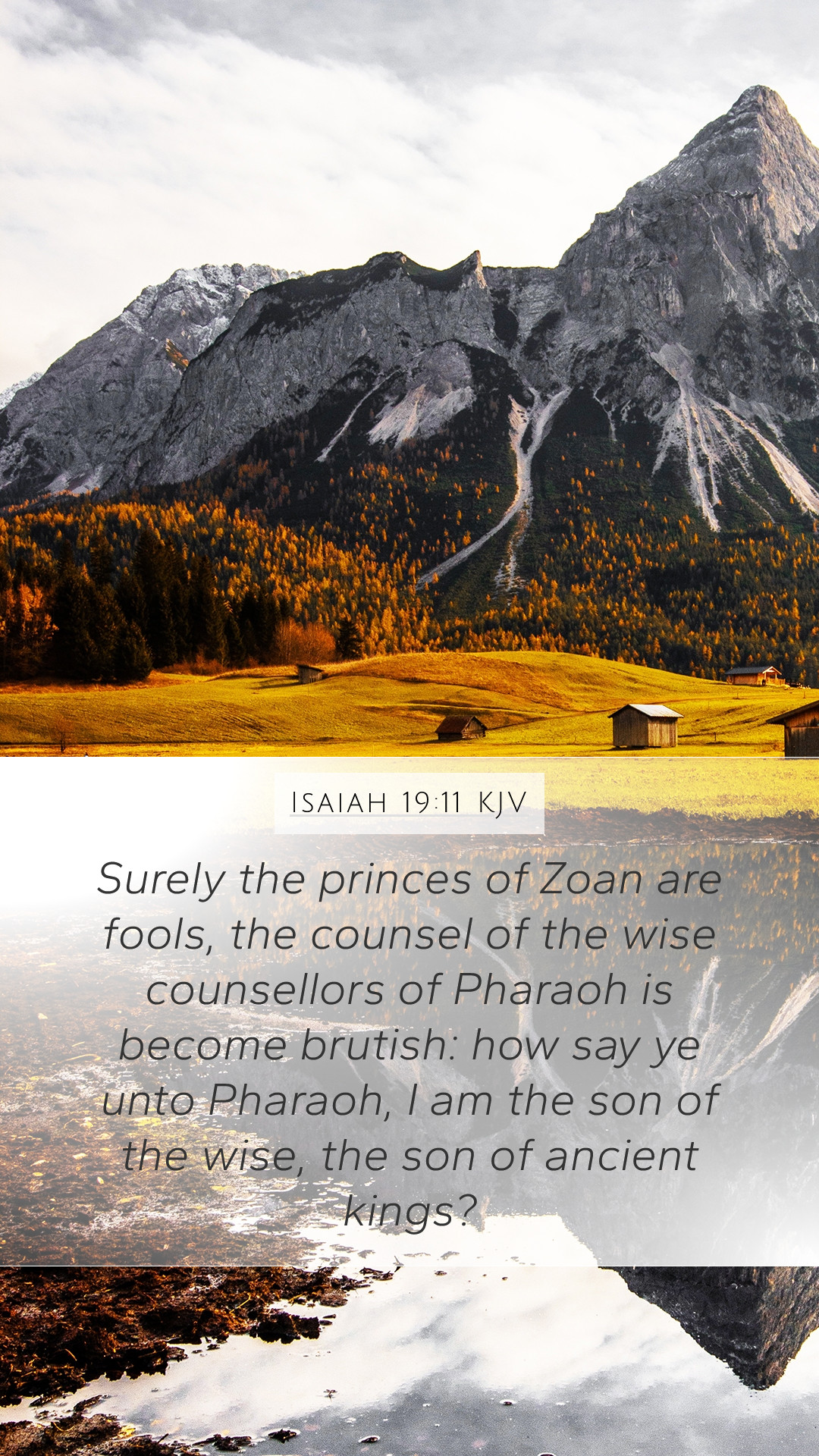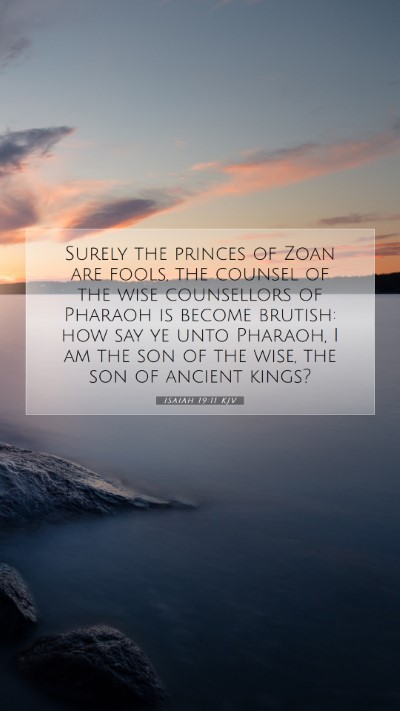Understanding Isaiah 19:11
Introduction: Isaiah 19:11 presents a profound commentary on the state of Egypt and its leaders, illustrating both their pride and ignorance in the face of divine wisdom. This verse speaks to the broader themes found throughout the Book of Isaiah, where the prophet often addresses the consequences of human arrogance against God’s omnipotence.
Text of Isaiah 19:11
"Surely the princes of Zoan are fools, the counsel of the wise counselors of Pharaoh is become brutish: how say ye unto Pharaoh, I am the son of the wise, the son of ancient kings?”
Bible Verse Meanings and Interpretations
Contextual Background: This verse occurs within a prophecy against Egypt, highlighting the nation’s reliance on its wisdom and royal lineage. The context further reveals the struggles that Egypt faces, suggesting a need for reliance on divine guidance rather than human understanding.
Matthew Henry’s Commentary: Henry interprets this passage as a criticism of the Egyptian leaders, who despite their title and heritage, lack true wisdom. He emphasizes that while they claim to have the counsel of wise men, their decisions reflect foolishness. This folly manifests in their inability to recognize their need for God’s help.
Albert Barnes’ Exegesis: Barnes provides insights into the folly of the leaders of Egypt, explaining that they have been reduced to a state where their wisdom is ineffective. He notes that they pride themselves on their royal lineage yet fail to act in ways that align with true wisdom, which can only come from God.
Adam Clarke’s Analysis: Clarke delves into the implications of this verse, suggesting that the Egyptian leaders are depicted as foolish for not seeking divine guidance during their crisis. He points out that God’s omniscience surpasses any human understanding, and this passage serves as a warning against human pride.
Detailed Analysis of Key Themes
- The Folly of Human Counsel: The verse stresses that worldly wisdom, especially when disconnected from God, is ultimately futile. The “fools” of Zoan represent leaders who trust in their own understanding.
- Pride and Identity: The question posed to Pharaoh—“how say ye unto Pharaoh, I am the son of the wise?”—exemplifies the dangers of relying on lineage and societal status to derive wisdom, rather than seeking God’s counsel.
- Consequences of Ignorance: The failure of the leaders to discern their spiritual state serves as a broader warning for all nations regarding reliance on human wisdom.
- Divine Sovereignty: Throughout Isaiah, the prophet emphasizes that while nations may rise and fall, God’s sovereignty prevails. The counsel of man, when uninspired by God, ultimately leads to ruin.
Application to Daily Life
This verse challenges readers to consider where they seek counsel and guidance in their lives. It serves as a reminder that true wisdom comes from humility and a willingness to seek God’s direction. In a world filled with conflicting advice, turning to Scripture and prayer offers a path toward clarity and divine insight.
Cross References
- Proverbs 3:5-6: Trust in the Lord with all your heart; lean not on your own understanding.
- 1 Corinthians 1:19: For it is written, I will destroy the wisdom of the wise, and will bring to nothing the understanding of the prudent.
- Isaiah 29:14: Therefore, behold, I will again do a marvelous work among this people, a marvelous work and a wonder; for the wisdom of their wise men shall perish, and the understanding of their prudent men shall be hidden.
Conclusion
Isaiah 19:11 serves as a significant reminder of the limitations of human wisdom in contrast to divine insight. Through the prophetic critique of Egyptian leaders, it invites readers to engage in Bible study insights that encourage reliance on God rather than on the faulty counsel that may arise from pride and arrogance.
This passage is not only relevant to its original context but continues to resonate in today's society, where many navigate life's complexities without acknowledging the sovereignty of God. Seeking understanding through Scripture ensures that we are guided by truth rather than illusion.


